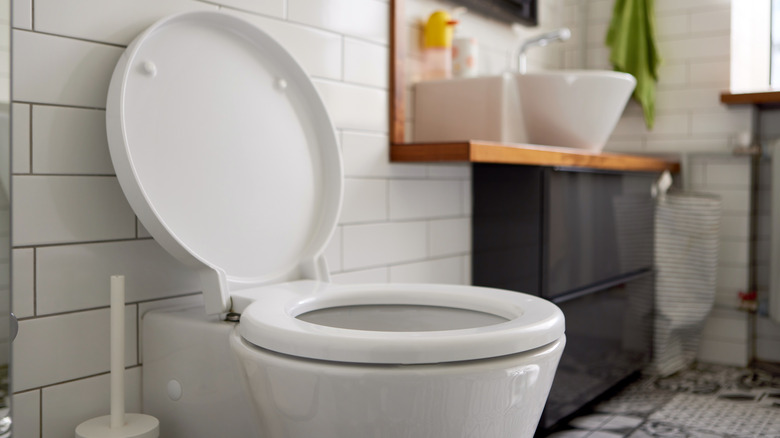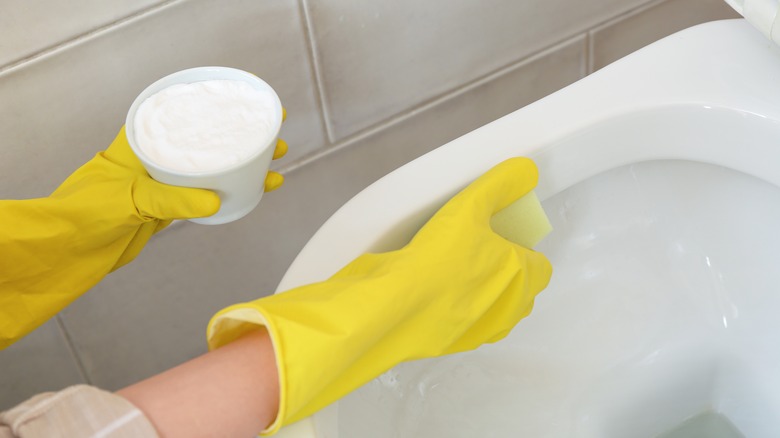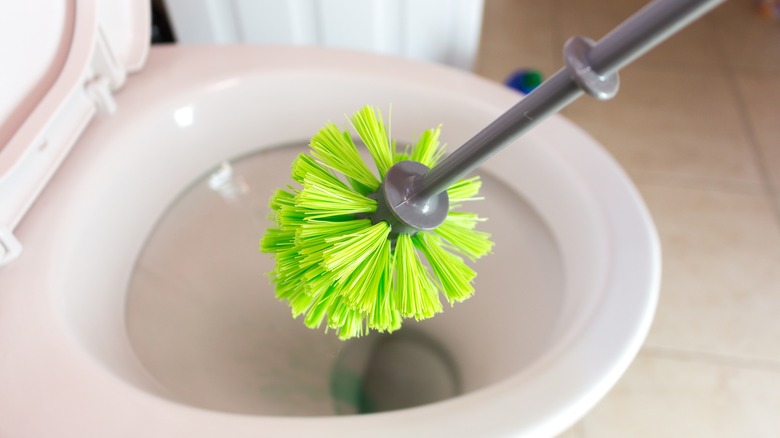The Common Toilet-Cleaning Tool Experts Recommend Ditching (& What To Use Instead)
We may receive a commission on purchases made from links.
Just when you thought you had your cleaning routine down pat, you find out you've been sweeping wrong your whole life or cleaning your walls wrong. There seems to always be a new tool, tip, or hack to adopt — or to ditch. One tool that experts say more people should reconsider is a toilet brush. They say there are more sanitary options to try instead, like a disposable wand or a regular sponge.
The fact that toilet brushes are hothouses for germs probably isn't too surprising — they come directly into contact with waste and then stay damp in their little caddies. "There is a fetid liquid bacteria soup at the bottom of every toilet-brush holder," cleaning expert Aggie MacKenzie told The Guardian. Among that plethora of germs, some can spread illnesses like urinary tract infections or diarrhea, meaning that toilet brushes can be not just gross, but also unhealthy.
Yet toilet brushes are increasingly popular toilet-cleaning tools in the United States, partially due to decreasing home sizes and smaller storage spaces for cleaning supplies (making the narrow design of a toilet brush and caddy appealing). But there are other options to try instead. And if you do decide to stick with your toilet brush, there are ways to make it cleaner and safer.
Toilet brush alternatives to try
Instead of a toilet brush, experts recommend something that may sound strange at first: cleaning your toilet by hand. With a pair of sturdy rubber gloves and a face mask to protect you from the aforementioned germs, you can use your own scrubbing power (plus your toilet cleaner of choice) to get your toilet bowl squeaky clean. Some also advise using a regular sponge and some baking soda to scrub.
Cleaning your toilet by hand will take a bit more effort, and it'll bring you more up-close-and-personal to your toilet than you ever thought necessary. But on the other hand, compared to a toilet brush, it's easy to wash and sanitize a pair of rubber gloves or dedicate one sponge for the toilet and replace it regularly.
Not sold? You can also use a disposable toilet brush, like Clorox's ToiletWand. Each scrubber is designed for a single use; after scrubbing your toilet bowl, just throw it in the trash, so no germs linger in the caddy.
How to make your toilet brush less gross
If you'd prefer to keep using a toilet brush, certain habits can make it more hygienic and keep your toilet brush fresh for longer. First, be choosy about which toilet brush you buy. Pick a model with a design that allows the brush to dry out between uses — not the standard airtight caddy set-up. Additionally, you can look for a toilet brush with replaceable brush heads. Replace your toilet brush at least every few months. Consider using rubber gloves when cleaning the toilet, and never touch the brush itself.
It's also important to clean the toilet brush regularly. After each use, sanitize both the brush and the holder with a disinfectant spray; occasionally, do a deeper clean by soaking the brush in bleach and water. Always let the brush drip dry by balancing it on the toilet before placing it back in the holder. This helps further eliminate any gross soupiness at the bottom of the caddy.


